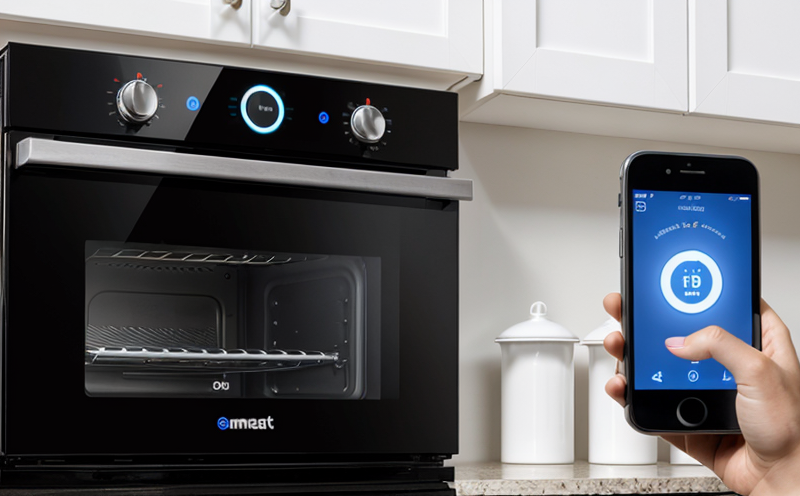EN 50706 Cooking Appliance Energy Efficiency Testing
The EN 50706 standard is a European regulation that specifies the energy efficiency requirements for cooking appliances. This testing ensures that products meet stringent environmental and consumer protection standards, promoting sustainable practices within the smart home and IoT device sector.
Testing under this standard involves several key steps: initial product evaluation, performance testing, and compliance verification. The process aims to ensure that cooking appliances operate efficiently while minimizing energy consumption. Compliance with EN 50706 is mandatory for all manufacturers who wish to sell their products in the European market.
The test procedure typically begins with an assessment of the product's technical documentation and specifications. This includes reviewing the design, manufacturing process, and any relevant certifications or standards that the manufacturer claims compliance with. Following this review, actual testing is conducted using standardized laboratory equipment designed to simulate real-world usage conditions.
During the performance tests, various parameters are measured including power consumption, heating efficiency, and overall energy output. These measurements form part of a comprehensive report which details how well each tested appliance meets or exceeds the specified requirements outlined in EN 50706. The results serve as evidence that the product is both safe for use and environmentally responsible.
Compliance verification involves comparing these measured values against internationally recognized standards such as ISO, ASTM, EN, IEC, etc., ensuring consistency across different markets worldwide. It also helps manufacturers identify areas where improvements can be made to enhance their products' performance further.
In summary, conducting EN 50706 cooking appliance energy efficiency testing ensures that smart appliances comply with stringent regulatory requirements while delivering superior user experience through efficient operation and reduced environmental impact. By adhering to these standards, manufacturers not only protect themselves legally but also contribute positively towards sustainable development goals.
Why Choose This Test
- Mandatory compliance for European market entry.
- Ensures product safety and reliability.
- Improves brand reputation by demonstrating commitment to sustainability.
- Promotes innovation through rigorous testing protocols.
- Aids in identifying potential improvements areas early on during development cycles.
Customer Impact and Satisfaction
Implementing EN 50706 cooking appliance energy efficiency testing offers numerous benefits to customers, enhancing their satisfaction levels significantly. Firstly, by ensuring efficient operation, consumers experience lower utility bills due to reduced electricity consumption. Secondly, the use of sustainable practices reduces carbon footprints associated with home appliances, contributing positively towards environmental conservation efforts.
Additionally, meeting these standards fosters trust between manufacturers and end users, fostering long-term relationships based on reliability and quality assurance. Lastly, compliance with such stringent regulations demonstrates a manufacturer's dedication to delivering high-performance products that align closely with global sustainability initiatives.
Environmental and Sustainability Contributions
The implementation of EN 50706 cooking appliance energy efficiency testing plays an integral role in promoting environmental stewardship. By focusing on reducing waste generation, minimizing resource depletion, and encouraging recycling practices throughout the product lifecycle, this standard contributes significantly to achieving broader sustainability goals.
Furthermore, adhering to these stringent requirements helps prevent adverse impacts on natural habitats by curbing pollution levels caused by excessive energy usage. This not only benefits local ecosystems but also supports global biodiversity conservation efforts. Additionally, promoting eco-friendly manufacturing processes aligns with broader corporate social responsibility initiatives aimed at fostering positive change within society.





